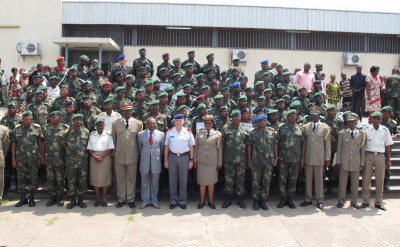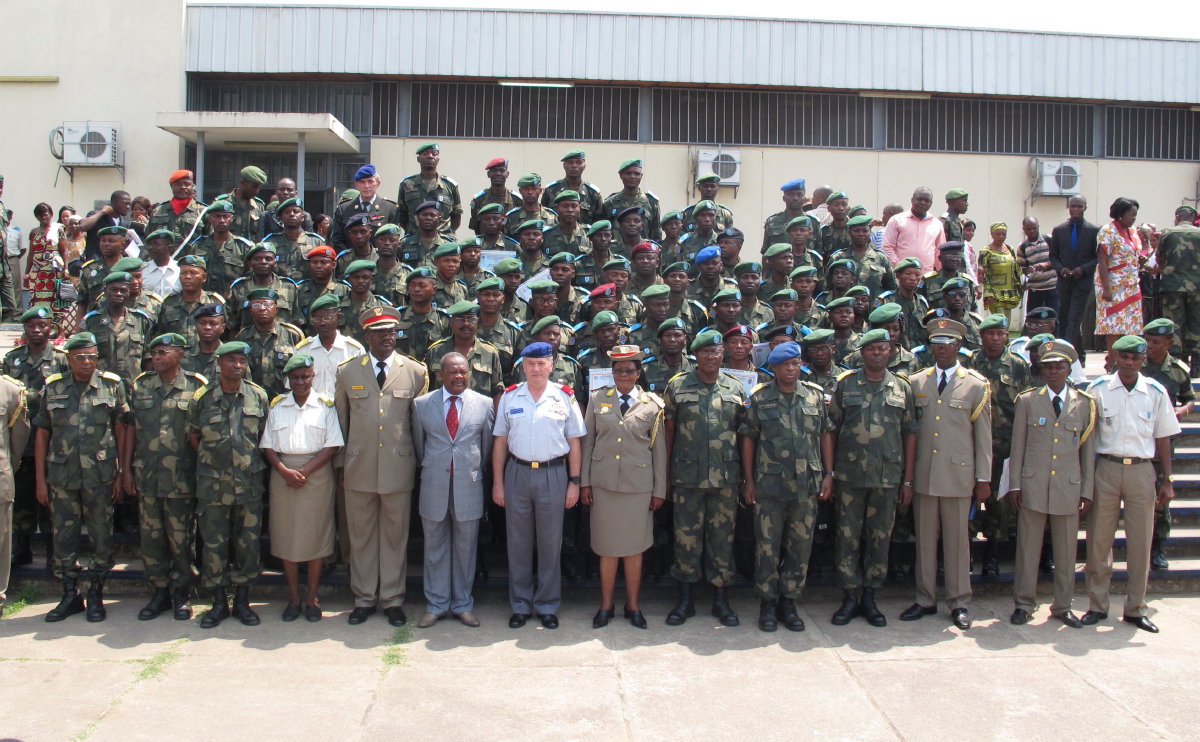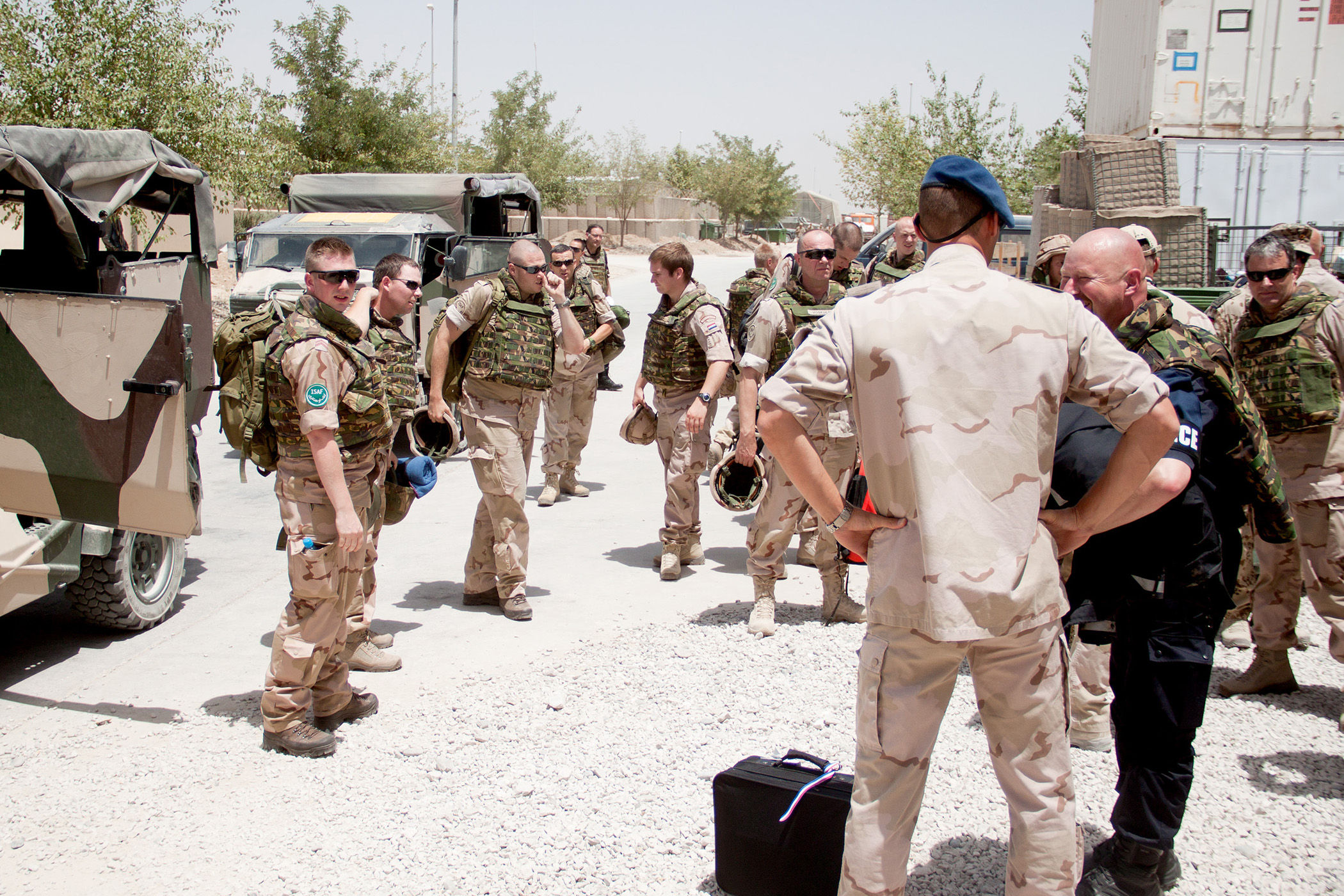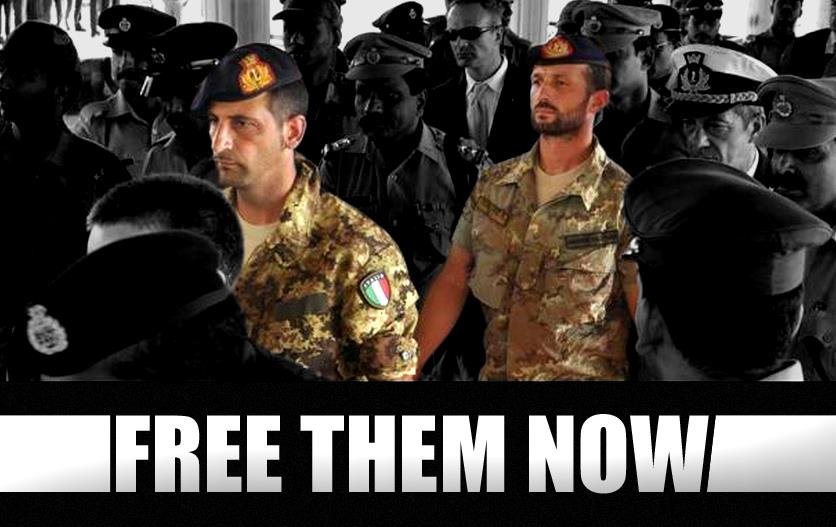Congo: priority for security reform, for NGOs

(BRUXELLES2) It is urgent to reform the security sector in Congo DRC so as not to continue wasting international aid which nevertheless represents half of the country's budget. This is the appeal launched by several international and Congolese NGOs (*), which publish a report. An interesting read that paints an uncompromising picture without sinking into fatalism.
At issue: endemic corruption
According to this report, "the investment of billions of dollars has had little impact on the lives of the Congolese". In question: the corruption of local authorities and in particular the military, "accused of having been widely implicated in the most serious human rights abuses". High-placed people in the hierarchy who use troop salaries, bribes, participation in illegal operations, or racketeering against armed protection: all practices that undermine the development of the country. The army is not solely responsible: "Police corruption is endemic and almost any form of judicial protection remains inaccessible to a vast majority of the population."An effective security sector, that is"organised, adequately resourced, trained and monitored" is essential if we want long-term development, believe the NGOs. A kind of necessary base for everything else in a way.
Double responsibility: Congolese and international
The report also points to international action. "The partners of the DRC have shown political incoherence and deficient coordination". Funds " minimal were devoted to security sector reform. In fact, of the $14 billion invested in international aid, just over 1% went to security sector reform. “The inadequacy of coordination resulted in interventions carried out piecemeal and based on contradictory imperatives a? short term. »
Despite everything, some successes, such as the Eusec mission
Still, some progress has been made, report notes ; which shows that there is 'hope'. " The rise in the number of prosecutions for sexual violence – including that of a senior officer – and the reintegration of child soldiers demonstrate that justice can be done. FARDC units trained by the United States, South Africa and Belgium have obtained good results during interventions carried out in delicate national environments. a census of military personnel is almost complete?. »
The report also notes the good results of the European EUSEC mission, which has had some success with its “chain of payment” project – ensuring that that all soldiers receive their salaries - the census exercise of FARDC personnel, the development of a "logistics doctrine" and administrative training. This project " shows that structural reform does not have to be expensive if support is properly targeted? ".
Some recommendations to the EU, the UN and the Congo
The report commits the European Union to " renew the mandates » of EUSEC and EUPOL, to insist on the ne?cessity? to make progress in the area of SSR during the program review planned for 2012, to be held “ ready to? provide technical assistance to the DRC to help him? develop a strategic reform plan for the army ". She also asks him extend targeted sanctions to individuals (military and political figures) who hinder the smooth running of the SSR ».
It also proposes to extend the Great Lakes Contact Group (United States, United Kingdom, European Union, UN, France, Belgium and the Netherlands) to key partners such as Angola, South Africa , but also China. The mandate of MONUSCO (a UN peacekeeping mission) was to be amended to “include support to the DRC government in security sector reform”. Finally he wishes a strong political commitment on the part of the Congolese authorities, in particular by excluding from positions of responsibility those who obstruct security reform”.
Substantial assistance from the international community
The Congo benefits from significant international aid. The cost of the MONUC/MONUSCO mission alone reached approximately $1,36 billion in 2010-2011 (a slight increase in cost compared to the 2006-2008 period when it reached $1,1 billion on an annual basis), i.e. an amount $6 billion over five years (2006/2007 to 2010/2011). Costs covered essentially by the most developed countries: $1,47 billion by the United States ($294 million annually), $499 million by the United Kingdom ($100 million annually), $464 million by France, etc. . A figure to be related to... the cost of the Eusec mission in Congo: 13,6 million euros for the period 2011-2012! supported by the European Union budget.
To this must be added the expenditure that States incur bilaterally (not including debt repayments) which amounted to 2010 (OECD figures): USA ($277 million), United Kingdom ($188 million), Belgium ( 165 million), Germany (77 million), Sweden (71 million), Spain (32 million), the Netherlands (20 million)...
Download the study within B2 Docs
(*) International organisations: Eastern Congo Initiative (ECI), International Federation for Human Rights (FIDH), British Parliamentarians Group on the Great Lakes Region of Africa (UK APPG), Open Society Initiative for Southern Africa (OSISA ), European Network for Central Africa (EURAC), Ecumenical Network for Central Africa (OENZ), Refugees International, The Enough Project. Congolese organisations: African Association for the Defense of Human Rights (ASADHO), Groupe Lotus, League of Electors, Pole Institute, Network for the Reform of the Security and Justice Sector (network of 289 Congolese NGOs aiming to contribute to security sector reform)

